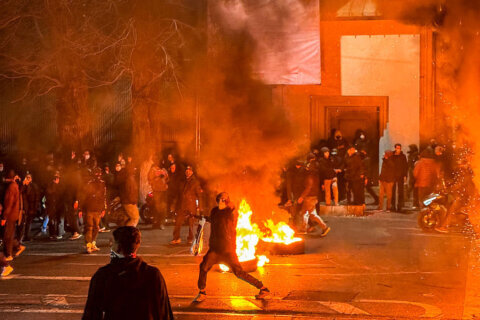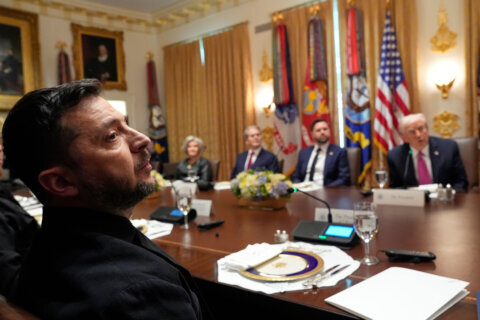WASHINGTON — Weeks ahead of terror attacks that rocked France, Tunisia, Kuwait and Somalia on Friday, U.S. authorities learned that the Islamic State of Iraq and the Levant (ISIL) has tried to create Western terror cells.
The June 26 attacks coincided with the first anniversary of ISIL’s announcement of the creation of a caliphate.
A plot disrupted by Belgian police in early 2015 tipped U.S. authorities off that the group is trying to plan large, complex attacks against Western targets, possibly including the U.S.
“The plot was the first instance in which a large group of terrorists possibly operating under ISIL’s direction has been discovered and may indicate the group has developed the capability to launch more sophisticated operations in the West,” a recent U.S. intelligence bulletin stated.
In January, authorities raided multiple locations, including a safe house in Verviers, a suburb of Brussels, where a firefight ended in the deaths of two suspects and the arrest of a third. Belgian authorities told their U.S. counterparts that they disrupted an alleged plot involving an ISIL cell with at least 10 operatives that were possibly targeting police or the public. After the initial raids, several people in European countries, including foreign fighters, were arrested and charged in connection with the cell’s activities.
Even though the group’s targets were likely in Belgium, the investigation determined that operatives were active in France, Greece, Spain and the Netherlands, as well as countries with limited to no counterterrorism cooperation with the United States, such as Syria.
Experts believe the group’s multinational operations reflect significant challenges U.S. law enforcement may face in detecting and investigating multi-jurisdictional threats. Several intelligence specialists suggest the operating environment for terrorists is evolving rapidly and requires almost foolproof inter-agency information sharing to prevent their attacks.
“The scale of the threats is changing; because of the sheer number of global foreign terrorist fighters — more than 25,000 in more than 100 countries — and because of the variety of operating spaces these fighters are in,” said Alexander Evans, coordinator of the United Nations expert group on terrorism.
Retired Gen. Michael Flynn, former director of the Defense Intelligence Agency, told WTOP the pace of technological change is benefiting terror groups and paving the way for more sophisticated tools and tactics to plan and launch complex attacks.
“That pace of changes and the changes that we are seeing in the Middle East, Central Asia, North Africa and parts of West Africa, with this radical version of Islam, is something that should concern all of us,” said Flynn.
Flynn warns U.S. officials not to underestimate them.
“I’ve been up close and personal with these individuals and I’ve seen the viciousness of how they see their world, their future, and I think we have to pay very, very close attention to what’s going right here at home, and we certainly need to do much more.”
After the June 26 attacks, Secretary of Homeland Security Jeh Johnson released a statement looking ahead to the July 4 holiday, saying, “here in the United States the Department of Homeland Security and the FBI continue to communicate with state and local law enforcement about what we know and see. We are encouraging all law enforcement to be vigilant and prepared. We will also adjust security measures, seen and unseen, as necessary to protect the American people.”
The U.S. intelligence bulletin indicated that Europe could immediately face increased plotting and attacks because of the number of European foreign fighters currently in Iraq and Syria, and Europe’s proximity to the conflicts in those countries. But the bulletin also pointed out that the tactics, targets and tradecraft allegedly used the Belgian plot “could be used in the Homeland.”
The bulletin said, “ISIL plots involving multiple operatives may grow, but are more likely to occur in Europe, where several recruitment networks have been disrupted, and several returning fighters have already demonstrated the ability to conduct attacks — than in the United States.”
The analyst who wrote the bulletin also expressed concern that small-scale attacks such as the May 3, 2015, attempt against the “Draw the Prophet” event in Garland, Texas, by individuals allegedly inspired by ISIL could happen “with little to no warning.”








